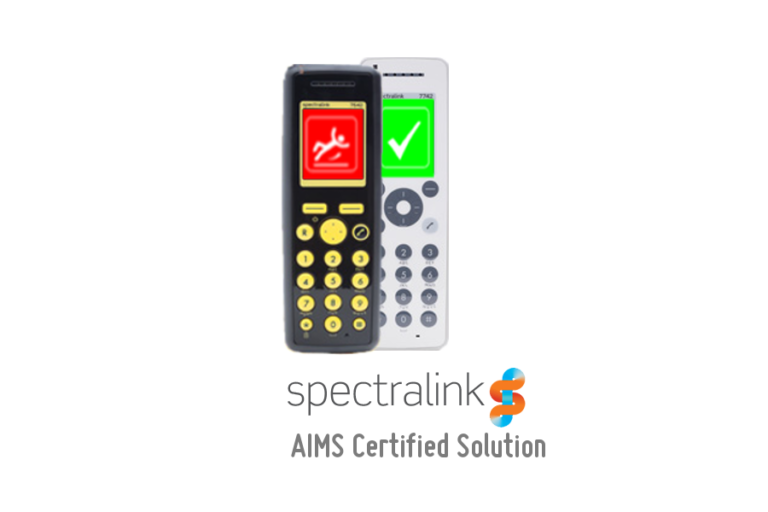TN MD – DECT MAN DOWN
License for alarm management from Spectralink DECT handsets

The license enables the Spectralink 7×42 series phone’s internal protection sensors to be activated and, if needed, automatically send emergency alert to emergency team users/devices programmed into the system.
The report also contains information regarding the location of the lone worker to enable rapid and effective rescue action
It is possible to send the alarm based on one or more detected conditions such as :
- Handset placed in a horizontal position (Man Down)
- Pressing the alarm button (LongKey)
- Handset Unreachable (Out of Radio Range)
- Tear off lanyard, handset taken away from operator (Tear Off)
- Speeding handset, panic escape (Fast Run)
Simple and effective customization
Various operation profiles can be defined for each worker by activating or not activating the sensitivity of various alarm sensors. All programming activities are performed via the web interface of the INFORMO IP central unit, thus avoiding direct intervention on the handset.
Reliable system
INFORMO IP continuously checks the optimal operating status of the individual handest so as to detect any abnormalities due to malfunction or when the lone worker moves away from the radio coverage area thus remaining unprotected. The report of failure to protect is recorded in the system and sent to the emergency team (or other recipients) who can take appropriate action.
In this condition, the handset itself, which independently verifies the lack of connection with the INFORMO IP system, also directly alerts the lone worker of the unprotected situation through an optical/acoustic signal.
False alarms are eliminated through careful management of pre-alarm steps on the handset itself that allow the worker to delay sending or reset the device before the alarm is sent.
INFORMO IP is a platform Certified by Spectralink under Spectralink’s Application Integration and Management Solutions (AIMS ) program.
Localization of lone worker in alarm phase
When an alarm condition is detected, the report sent to the recipients (e.g., emergency team) contains not only information about the type of alarm sent but also information about the location of area in which the lone worker is operating at that time.
The location is detected based on the DECT radio cell (RFP) to which the handset is currently registered. Each cell is associated with a customizable description (e.g., warehouse) to allow quick identification.
The handset itself can be programmed to emit an optical/acoustic signal at various intensities (when in alarm) to facilitate the detection of the lone worker by the rescue team intervening in the reported area.



